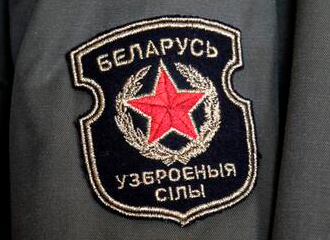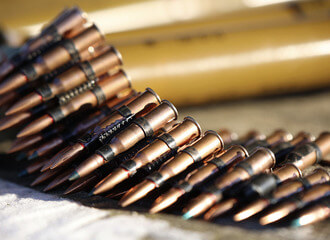На русском языке:
Светлана Тихановская дала эксклюзивное интервью «Эху Москвы»
На беларускай мове:
Святлана Ціханоўская дала эксклюзіўнае інтэрв’ю «Рэху Масквы»
Sviatlana Tsikhanouskaya gave an exclusive interview to Alexei Venediktov for the radio station Echo of Moscow. Because of her safety concerns, Tsikhanouskaya communicated with Venediktov remotely. The editors of motolko.help quote some points of her interview.
On a trip to Russia
«I am still afraid, because I am wanted in Russia. I would love to meet you on neutral territory. Of course, the threat of arrest still remains, because it is not safe on the territory of the Russian Federation. Belarusians who entered the territory of Russia are extradited very easily».
On coming to politics
«My personal experience is that I got into politics quite by accident, because my first step in this case was only to support my husband, who wanted to run for president, only to show people an alternative. I saw my husband being imprisoned for the first time, and the second and the third. I went first and foremost for my spouse. I realized that I am with Belarusians, I am for my husband».
On Lukashenka
«If you look objectively, then of course there is a part of Belarusians who are adherents of the values of the Soviet Union. It is still in their heads that without Lukashenka the country will fall apart, for some reason without Lukashenka everything will be sold out, without having any reason for this. Perhaps for 27 years there are people who are convinced that Lukashenka is a father and after him nothing good will happen. But I think that’s an opinion imposed. Since the declaration of independence of Belarus, we have not had another head of state, Belarusians have no one to compare with – as it is when another person runs the country.
So there will be people like that, of course, but the society is changing. A new generation has grown up that understands that there can be a different life, politics can be different and people want to take part in the politics of their country. Before that, people didn’t have that opportunity. Or desire».
On migration crisis and a dialogue with Lukashenka
«I think that Lukashenka would like to shift the focus from human rights, from political prisoners, from beatings to the migration crisis. And I would like the West to start talking to him on resolving this migration crisis, bypassing the Belarusians.
We always say that what is needed is not between the regime and the European Union, the regime and the Kremlin, but between the regime and Belarusians».
On what could be done differently
«Probably, nothing could have been done any other way. We did… I don’t want to say the word «revolution,» but that’s the way it is, based on current events. Perhaps the only thing we underestimated at that moment was the inadequacy of the authorities. To be honest, I thought that the so-called authorities would see hundreds of thousands of people on the streets and understand that it was time to conduct a dialogue with Belarusians. Make decisions for people, not for one person.
Today we see that even before the protests began, concentration camps were already being built, they were ready to shoot and beat people, so on the other side, on the part of the regime, there was a willingness to drive all this back into the kitchen».
On Russian language when Tsikhanouskaya comes to power
«Not when I come to power, but when we have new elections. As for the language, in fact, there are many disputes in Belarus. We have two state languages now, and unfortunately, the Belarusian language and culture have somehow been relegated to the background.
Of course, we, as a state, as a country with its own language culture, will be forced to revive the Belarusian language. But this does not mean that we will be against the Russian language.
Most of our population speaks Russian and that’s the right of the people. Whether there will be one state language or not – this will already be discussed after the elections by a new president with the participation of Belarusian people. Whether the questions will be organized in some way, I don’t know. But Belarusians have nothing against the Russian language or Russia».
On whether she will run for new elections
«I do not plan to run in new elections, primarily because I have no political ambitions. And another important fact: I promised Belarusians, I am not going to be the president of Belarus. We have many decent people who can take over the leadership of the country. So my answer is no».
On sanctions and the support of Russia
«Sanctions would be much more effective if representatives of the regime could not come and take loans. But they can. So let’s ask the Kremlin’s representatives: Are they worth it?
It is necessary to imagine a new person in power who will also improve trade and economic relations between Belarus and Russia.
I think it will be a mutually beneficial and open position for everyone. Why does the Kremlin think that everything will be bad after Lukashenka? Things will be even better in our relationship».
On calling for sanctions and how they can hit the people
«Sanctions are not against Belarus, but against the regime. And we are talking about sanctions that will hit pro-governmental business, state-owned enterprises. Workers are not suffering because of sanctions. Workers suffer because of lawlessness and violence in our country, they suffer because of the regime. Let’s be honest. People will stand up for their rights.
— So you don’t see any contradictions? –Venediktov said.
–You know, Western countries also sin with this phrase that sanctions can harm people very much, let’s say».
On the effectiveness of sanctions
«The sanctions have not yet entered into full force, at least the American ones. A new package is being prepared.
Please note that the sectoral sanctions and the 5th package that is being discussed are not about the humiliation of human rights in Belarus, but a response to inadequate actions of the regime.
Unfortunately, in response to all the violence occurred in Belarus, some sanctions were imposed, which included only about 80 people».
On negotiations
«If it happens that he [Lukashenka], figuratively, will be at the negotiating table, then we will have to talk. But there are platforms for negotiations like the OSCE, for example, and there may be representatives of the regime and democratic forces at this platform. Perhaps the picture is idealized, but I believe that in the 21st century it is the best and most peaceful way to change power in a dictatorial country».
On bought tickets to Minsk
«We bought tickets because we thought that there would be such an opportunity [to fly to Minsk]. We had our own plan, but we underestimated [Lukashenka’s] desire to maintain power against the will of Belarusians.
We can use pressure to force the people around him to go to these negotiations. Again, it can be negotiations with other people, not just him».
On unacceptability of change of power by revolutionary means
«You know, I’m against such a scenario. It’s not that I don’t support it, because the woman in me speaks first. I understand that in such events, sacrifices are inevitable, especially if the Lukashenka regime is ready to shoot. And we know they’re ready to kill people. I would not like to sacrifice Belarusians in such a seizure of power».
On expectations from Russia and the leadership of the Russian Federation
«Once, I called your president wise, I hoped for wisdom of the Kremlin».
«We would like the Kremlin to play its constructive role. We want to continue relations with Russia. We are not going anywhere from you, just as you are from us. We will have to work. To have both industry and economic relations further. But with an illegitimate president, that’s impossible».
«In order to maintain normal relations with Belarus, which is beneficial to both you and us, we need to accept the will of the Belarusian people».
On disappointment in the position of the Kremlin and Putin
«I was upset at first, when there was a very clear economic support for Lukashenka in the first place. But now we have probably internally accepted [the Kremlin’s] position and this does not affect belarusians. They still continue to go further and understand that the main task is new elections».
On Putin as a possible moderator in the negotiations between Lukashenka and Tsikhanouskaya
«Of course, [Putin] can, like representatives of other countries. In order for agreements to be accepted by everyone during the negotiations, and for representatives of other countries to record them, and so that no further questions arise».
On signing of roadmaps by Lukashenka and Putin, the Union State and sovereignty
«We already have two sovereign countries and the Union State does not imply the surrender of sovereignty. Sovereignty and independence for Belarus is the highest value and no one is going to trade it.
The integration is already so deep that we have to live with it. But you know what the question is? That the majority of Belarusians do not understand the essence of the Union State, do not understand the essence of integration – what does it mean. Everyone believes that this is not a surrender of sovereignty, perhaps some closer economic relations. The single currency, of course, is not acceptable for Belarusians.
But if it’s a mutually beneficial union, why not? We do not have any anti-Russian manifestations, we just want the best for our country: so that people are not oppressed at enterprises, there are normal working conditions. The most important thing is to have normal management in the country.
If this requires deepening integration, although I am sure that it is possible to do without it, then I think that the new president will dot all the i’s and make a choice».
On a single parliament
«It seems to me that there should be a Belarusian parliament. Let’s take the example of the European Union – it includes dozens of independent states and there is the European Parliament.
There can be the parliament of Russia, the parliament of Belarus. And in order to regulate some relations between the two countries, there may be a Union Parliament. But that’s my opinion, maybe I’m not thinking right».
On self-sacrifice, heroes and efficiency of work from abroad
«All people who have sacrificed their freedom, maybe life – in this situation they are definitely heroes. I am not sure that I could act like Masha [Kalesnikava], like my Siarhei [Tsikhanouski], like Viktar Babaryka. It has to be a very big inner strength.
But it is probably more effective to continue to fight, to be able to fight. And of course, Masha, she is incredible. By her example, even in prison, she inspires millions of Belarusians. She even supports us from there.
And it is Masha, it is Viktar Dmitrievich [Babaryka], it is Siarhei Tsikhanouski, [Maksim] Znak and thousands of names could be listed – this is a guarantee that the Belarusians will not stop».


